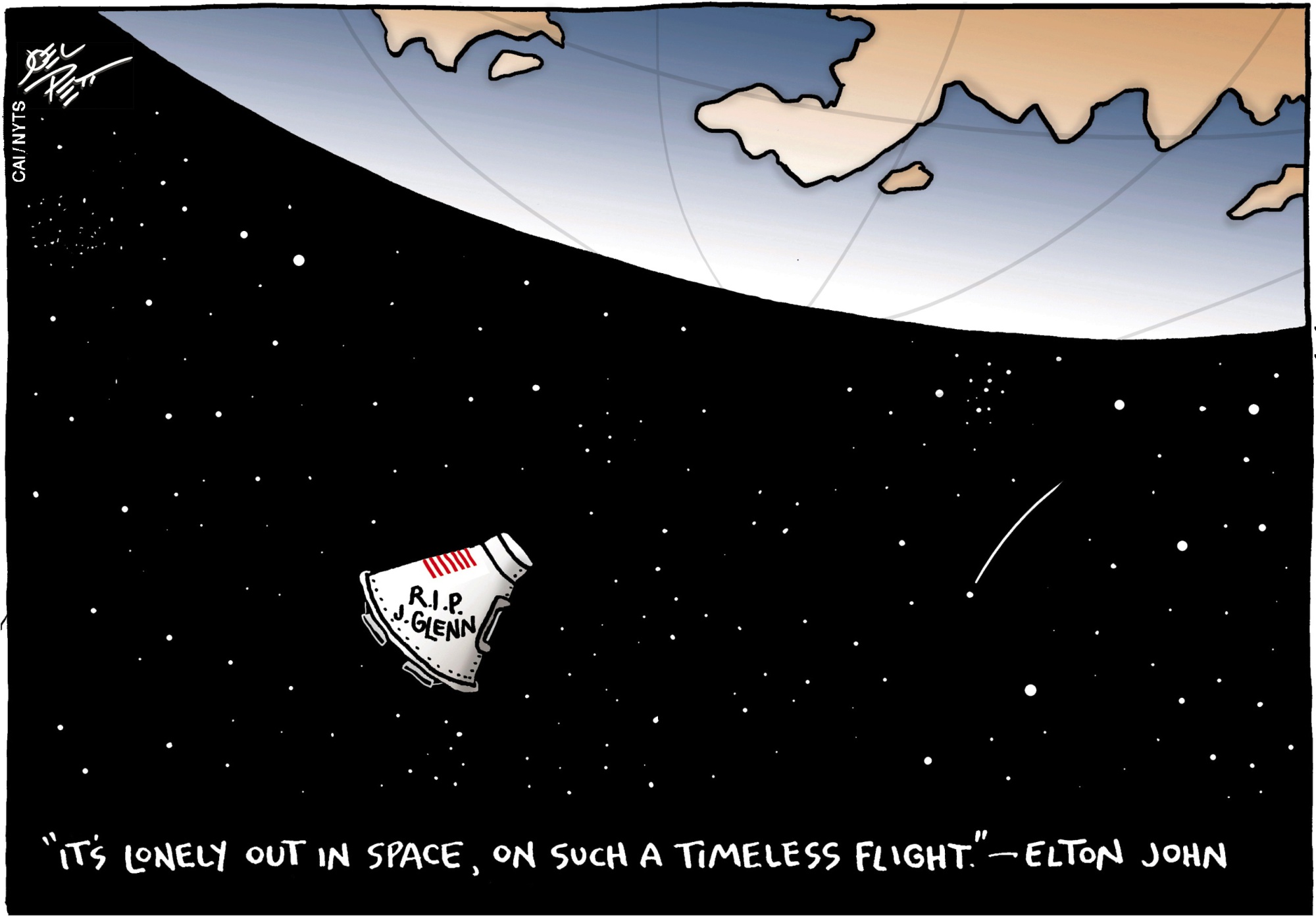John Glenn was one of my heroes. When I was a kid, we would learn about the exploits of the Mercury astronauts in "My Weekly Reader" and gawk at their photographs in "Life." Each of us had a favorite, and Glenn was mine. I was in second grade in February 1962 when he became the first American to orbit the globe, and like the rest of the country I was ecstatic.
Glenn, who died last week at 95, was the rare public figure who was just exactly what he seemed — the smiling, hardworking Presbyterian from a little town in Ohio who joined the marines as an aviator after Pearl Harbor, won medals in two wars, and became the face of the U.S. space program. He was a genuine hero at a time when heroes were in short supply.
It's hard to capture for the contemporary reader the extent to which the Cold War dominated public life in the early 1960s. This was the era of fallout shelters and air raid drills. Glenn's flight was sandwiched between the crises in Berlin and Cuba, either of which could have erupted into a conflagration. Children worried as much as adults about Armageddon. My friends and I used to bet nickels and dimes on when World War III would start.


















With your current subscription plan you can comment on stories. However, before writing your first comment, please create a display name in the Profile section of your subscriber account page.